Vergo Retail – the saviour of unloved Co-op department stores?
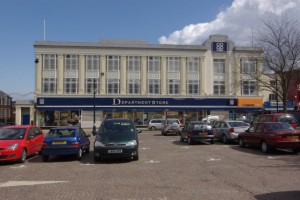
Co-op Department Store, Great Yarmouth, prior to Vergo Retail’s takeover. Photograph by Stephen McKay
In the last couple of weeks, one interesting news story that has been easy to miss is the takeover of the East of England Co-op’s department store business by Vergo Retail.
Vergo Retail, as you may be aware, is the Liverpool-based operation headed by David Thompson that, in 2007, rescued Lewis’s of Liverpool, Joplings of Sunderland and Robbs of Hexham from the brink of closure after Owen Owen, the previous owner, had gone into administration.
Reports suggest that Vergo Retail has been doing rather well since then. Certainly, the business has been performing well enough to snap up the non-food operation of the Plymouth & South West Co-operative Society[broken link removed] (PSWCS) in February this year, including the Derrys department store in Plymouth and four additional Homemaker stores in Devon and Cornwall; and well enough to double the size of the business again, just a couple of weeks ago, with the acquisition of twelve East of England Co-op shops. This latest acquisition includes department stores in Norwich, Ipswich, Colchester, Clacton-on-Sea and Great Yarmouth, as well as six home stores in Felixstowe, Stowmarket, Clacton, Stanway, Dovercourt and Witham, and a standalone jewellery store in Colchester.
These developments are notable for various reasons, not least in being illustrative of the extent to which the UK’s consumer co-operative movement as a whole has recently been seeking to exit the non-food sector. A critical milestone in this respect was the Co-operative Group’s decision, in 2005, to close or sell its 36 department stores; here in the North East, this resulted in the closure of landmark stores in Gateshead, Newcastle, Chester-le-Street and elsewhere, while a few others – including Bishop Auckland, Blyth and (briefly) Berwick-upon-Tweed – became part of Anglia Regional Co-operative Society’s Westgate Department Stores business.
The impact of the Co-operative Group’s exit from department stores has been significant. First, it has created challenges for those (dwindling number of) independent co-operative societies that remain – such as East of England and, in my parents’ home town, Tamworth Co-op – requiring them to source new suppliers and renogotiate with existing ones, while having to work increasingly hard to maintain gross margins. Second, it has meant that for any societies seeking to merge with the larger Co-operative Group – such as United Co-op in 2007, and PSWCS in 2009 – prior disposal or closure of their department stores has essentially been a prerequisite.
Vergo Retail’s recent moves are therefore significant in that they seem to offer unloved and unwanted Co-op department stores a lifeline – as non-Co-op department stores. In the east of England, there can be little doubt that many of the now-saved stores would have closed had Vergo not stepped in – yet they are all shops that have a loyal clientele; that perform an important function within their respective communities; and that, with some dynamic management and a little investment, could once again be highly successful. Indeed, as Vergo expands its empire, its ability to secure improved supplier terms – and offer better deals to customers – will be enhanced; the very opposite situation to that faced by the few remaining co-operatives with non-food interests.
What is interesting, from a historical point of view, is that I can think of no precedent where Co-op department stores have been acquired, as going concerns, by a non-co-operative retailer; rather, if you were to go back to the 1950s and earlier you would see the process happening in reverse, with independent department stores – such as Newcastle’s Henry A Murton’s in Grainger Street[broken link removed] – being acquired by local co-ops.
Going forward, much will depend of course on whether Vergo can successfully turn around the mostly loss-making stores that it has acquired; however, the company’s apparent success in reinvigorating Lewis’s, Joplings and Robbs (no-one can forget the sad, plundered interior of Robbs in the days leading up to its aborted closure) bodes well. For me, though, the burning question – and one that I cannot find either asked or answered anywhere else – is how will Vergo rebrand its newly acquired stores in Norfolk, Suffolk and Essex? After all, a store that is no longer a co-operative can barely be called a ‘Co-op Department Store’.
It will be interesting to see whether Vergo comes up with some locally-inspired names, or whether – in House of Fraser style – it seeks to bring some brand consistency to its growing portfolio. Lewis’s of Clacton, anyone?
Thank you to Stephen McKay for the use of the photograph of Great Yarmouth’s Co-op (now Vergo) department store, which is © Copyright Stephen McKay and licensed for re-use under the Creative Commons Licence.

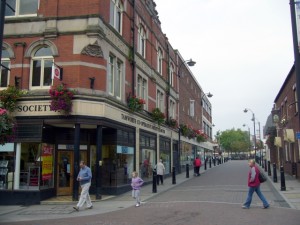
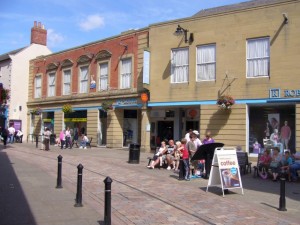

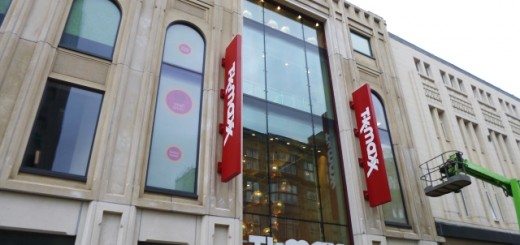
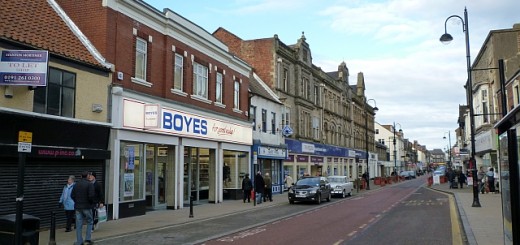
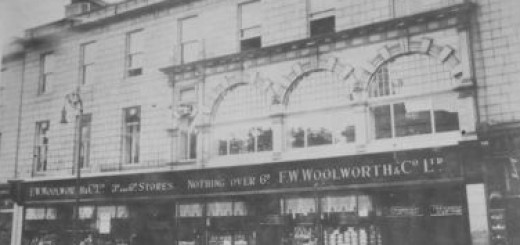


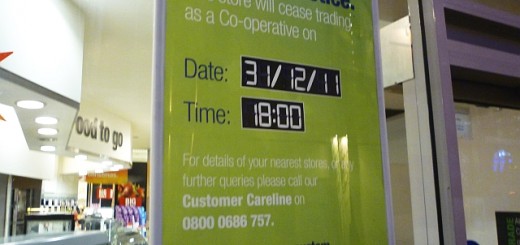

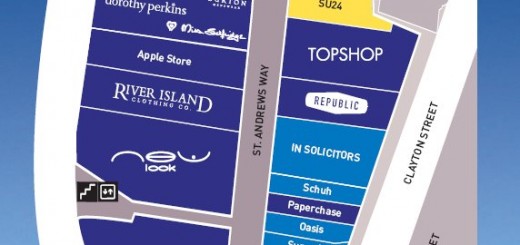
9 Responses
[…] I wrote about Vergo Retail’s recent acquisitions a few days ago, it brought to mind the photographs that I took back in February this year of the […]
[…] readers may recall my post from last month, where I queried how the former East of England Co-op department stores might be rebranded […]
[…] I’ve written before, in a blog about the fate of Co-op department stores nationally, Sheffield Co-op’s merger with United Co-op, which then merged in turn with the larger […]
[…] maintain its position at the very heart of the town’s shopping experience at the same time as other regional Co-ops have exited non-food all together. Co-op department store, Tamworth (19 Sep […]
[…] know is that the story has a neat, if slightly tenuous, link to a building mentioned briefly in one of my first blog posts – Murton House, in Grainger Street. Having housed the Henry A Murton department store from […]
[…] ‘Vergo Retail’, and the likelihood is that you’ll currently find Soult’s Retail View among the top few search results. Indeed, since this blog launched in July, five of the top ten […]
[…] the Westgate Department Stores brand by Anglia Regional Co-operative Society (ARCS). As I’ve mentioned before, Bishop Auckland’s Co-op department store was one of three North East shops rescued by ARCS […]
[…] As regular readers of Soult’s Retail View will know, Vergo Retail had an acquisitive 2009, snapping up a succession of closure threatened Co-op department and home stores. These were added to the portfolio of three large department stores – Robbs, Joplings and […]
[…] this year, its ex-Woolworths managed to avoid also becoming an ex-Peacocks, while its ex-Co-op department store was reopened by former staff and management, Wellworths-style, following Vergo Retail’s […]